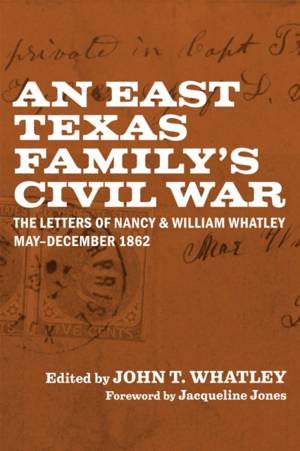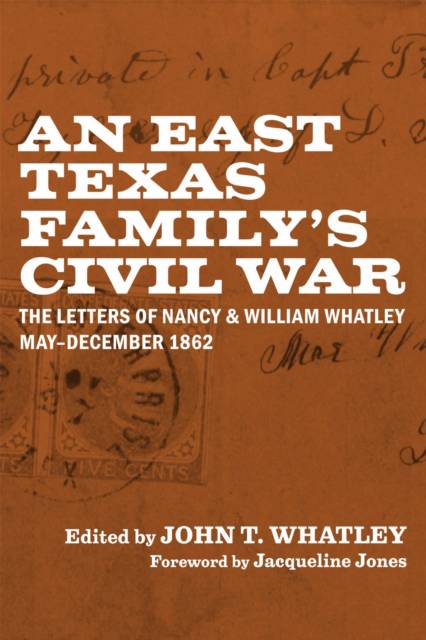
- Afhalen na 1 uur in een winkel met voorraad
- In januari gratis thuislevering in België
- Ruim aanbod met 7 miljoen producten
- Afhalen na 1 uur in een winkel met voorraad
- In januari gratis thuislevering in België
- Ruim aanbod met 7 miljoen producten
An East Texas Family's Civil War
The Letters of Nancy and William Whatley, May-December 1862
Omschrijving
During six months in 1862, William Jefferson Whatley and his wife, Nancy Falkaday Watkins Whatley, exchanged a series of letters that vividly demonstrate the quickly changing roles of women whose husbands left home to fight in the Civil War. When William Whatley enlisted with the Confederate Army in 1862, he left his young wife Nancy in charge of their cotton farm in East Texas, near the village of Caledonia in Rusk County. In letters to her husband, Nancy describes in elaborate detail how she dealt with and felt about her new role, which thrust her into an array of unfamiliar duties, including dealing with increasingly unruly slaves, overseeing the harvest of the cotton crop, and negotiating business transactions with unscrupulous neighbors. At the same time, she carried on her traditional family duties and tended to their four young children during frequent epidemics of measles and diphtheria. Stationed hundreds of miles away, her husband could only offer her advice, sympathy, and shared frustration.
In An East Texas Family's Civil War, the Whatleys' great-grandson, John T. Whatley, transcribes and annotates these letters for the first time. Notable for their descriptions of the unraveling of the local slave labor system and accounts of rural southern life, Nancy's letters offer a rare window on the hardships faced by women on the home front taking on unprecedented responsibilities and filling unfamiliar roles.Specificaties
Betrokkenen
- Uitgeverij:
Inhoud
- Aantal bladzijden:
- 200
- Taal:
- Engels
- Reeks:
Eigenschappen
- Productcode (EAN):
- 9780807170694
- Verschijningsdatum:
- 17/04/2019
- Uitvoering:
- Hardcover
- Formaat:
- Genaaid
- Afmetingen:
- 224 mm x 229 mm
- Gewicht:
- 362 g

Alleen bij Standaard Boekhandel
Beoordelingen
We publiceren alleen reviews die voldoen aan de voorwaarden voor reviews. Bekijk onze voorwaarden voor reviews.








